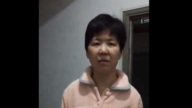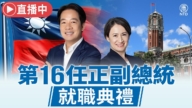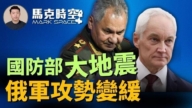【新唐人2011年10月12日讯】10月9号中国成品油价格每公吨下调300元,这是16个月来首次调降油价,汽柴油每公升价格降幅在0.22元到0.26元不等。不过对于本来就跑不多的私家车来说,加一次油省3、4块钱意义并不大。专家分析说,所谓调价机制,事实上是中石油跟发改委和中石化间取得最大利益的妥协。
国际原油价格今年5月来到最高点,美国西德州原油和英国布兰特原油价格,一度涨到每桶115美元和125美元以上,接着开始一路下滑,10月4号来到了新低75美元和99美元,跌幅约三成。发改委从4月7号调涨后就再也没调降过。民众认为,中国油价没有标准,说上去就上去,跌却跌不了多少。
北京陈先生:“怎么升的这种抉择,政府是按照国际市场的油价,订的定价机制吧,这个都是在政府有关部门,或者是石油垄断公司他们控制之下的。”
中国油价格从去年10月26号到今年4月7号总共调涨了四次,汽油每公吨总计涨了1390元、柴油每公吨涨了1270元,而去年10月国际油价约在85美元左右,这次却只调降了300元,民众认为并没有真正反映油价。发改委解释成品油问题 不承认涨快跌慢。
西安程先生:“他们老是一说起来,就是说这油价上调还是下调是通过国家发改委,市民的啥、老百姓的啥,根据这个市场,根据老百姓的收入,反正他们这东西说的挺多,说的一个,做的一样。”
油价9号调降后,93号汽油零售价以西安市每公升7.17元最低,海南8.27最高。
时事评论员杰森表示,中国原油一半是自海外进口,一半是自己的油田开采,成本相较其他国家低很多,油价却比其他国家来得高。而中石油、中石化和中海油从政府得到免费的石油能源,和完全的垄断地位,这个利润本身就是一个很难说清的概念。
时事评论员杰森:“你比如说,利润实际上是销售减去成本,他就无限制的把成本提高,这样的利润几乎是亚洲利润最高的企业,超过日本一些很大的制造企业。”
杰森说,中国油田是属于全国老百姓的,中共又无偿的给了中石油、中石化,基于这点,中国国内油价应该要很低廉让老百姓享受的,但实际上并没有。
杰森:“现在发改委这样一个中央机构,其实这些中央机构他能管的地方也很小,他最多是给他点面子,表面上听的话,其实这些央企他有很大的权力,他所谓的机制是在跟发改委和中石化之间妥协的公式,就是我们以什么样的计算公式达到我们两方的妥协。”
现行的油价调价机制暴露出周期过长,机制透明度不够,发改委表示,将会修订新的价格机制。不过,杰森指出,中共给企业垄断权,企业衡量利润来源,他们怎么修改新的价格机制,一定都是本着维护企业的利益,杰森说,这些企业存在的本身就是一个问题。
新唐人记者张丽娜、李庭、薛莉采访报导。
China’s Oil Monopolies Unaffected by Adjustment Mechanism
China’s refined oil prices dropped 300 Yuan (US$47) per tone on October 9, which was the first price cut in 16 months. This amounted to a drop in gasoline and diesel prices between 0.22 and 0.26 Yuan (US$0.035 and US$0.040) per liter, respectively. For private drivers, it represented a mere at-the-pump savings of only 3 to 4 Yuan (US$0.47 to US$0.63), per fill up. Experts say the so-called oil price adjustment mechanism, is in fact, the maximum agreed upon price between the National Development and Reform Commission (NDRC), China National Petroleum Corporation (CNPC), and China Petroleum & Chemical Corporation (Sinopec).
International crude oil prices rose to their highest in May. The price of U.S. and U.K. Brent rose to $115 and $125 per barrel, respectively. Then the price rapidly dropped to an historic low of $75 and $99 dollars, since October 4, or about a 30 percent decrease. Many people believe that there are no standard oil prices in China. The price usually climbs very rapidly and when it drops, it does so in small increments and very slowly.
Mr. Chen from Beijing: “Oil prices should be pegged to international market prices. However, in China prices are controlled by the relevant governmental departments and petro company monopolies.”
From October 26 to April 7, China’s oil prices quadrupled. Gasoline and diesel rose $1,390 and $1,270 per tone respectively. However, international oil prices last October were around the $845 mark. Many people think the $300 price cut doesn’t really reflect the true price of oil. But the NDRC wouldn’t admit it.
Mr. Cheng from Xian: “They always claim, that the ups and downs in oil prices are in accordance with market values and people’s income, which are decided upon by the NDRC. They were saying one thing and doing quite another.”
After the oil price cuts in October 9, the lowest retail price of gasoline stands at 7.17 Yuan (US$1.12) per liter in Xi’an, while the highest price is 8.27 Yuan (US$1.30) in Hainan.
Commentator Jason: “Half of China’s crude oil imports come from overseas. The cost of crude is very low in China, but oil market prices in China are much higher than other countries. Plus, Petro China, Sinopec, and CNOOC are able to obtain free oil energy that offered by the regime and thus establish a complete monopoly. The profit mechanism itself is a concept which is difficult to explain.”
Commentators Jason: “For example, profits are actually sales minus the cost. Thus, these monopolies artificially raise the cost index so that they can reap the most profit, thereby becoming the most profitable companies in Asia, even more than a number of large manufacturing enterprises in Japan."
Jason said, “China’s oilfield belongs to the people of China. Since the Chinese Communist Party (CCP) has given CNPC and Sinopec its oil fields for free, China’s domestic oil prices should be very low, but they are not.”
Jason: “An organization like the NDRC has minimum control in just a few areas; however, central enterprises have enormous power, which is beyond the control of the NDRC. The so-called mechanism is a formula jointly derived between Sinopec and the NDRC. They always reap the highest profits for themselves, using the “best” formula to calculate oil prices.”
The current oil price adjustment mechanism exposes a hidden, secret behind formula for oil monopolies to reap enormous profits. Although the NDRC said it will amend the new price mechanism, as Jason pointed out, the CCP outright helped create these oil monopolies, which will always protect their own interests first, no matter how the pricing mechanism is modified. “The existence of these oil monopolies is itself the problem,” Jason concluded.
NTD reporters Zhang Lina, Li Ting and Xue Li




























